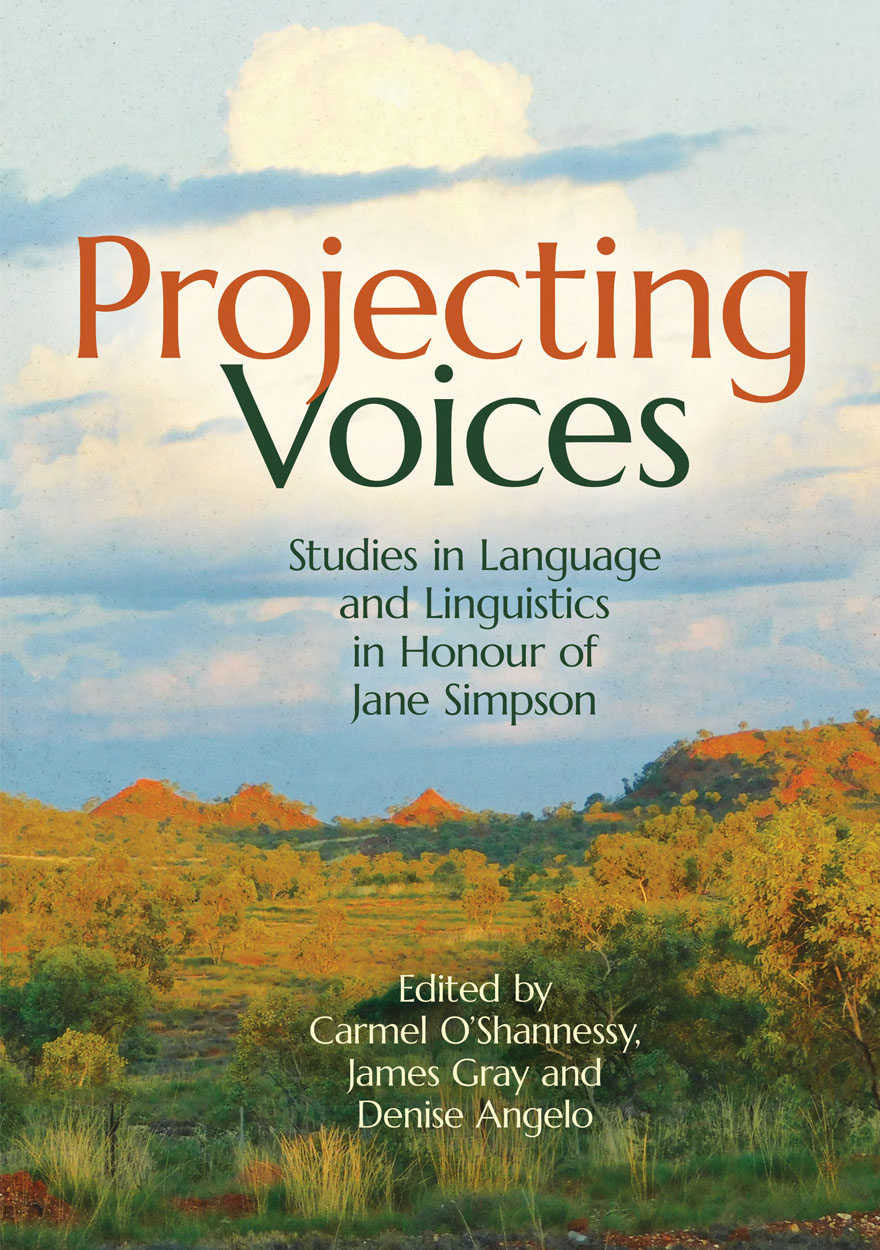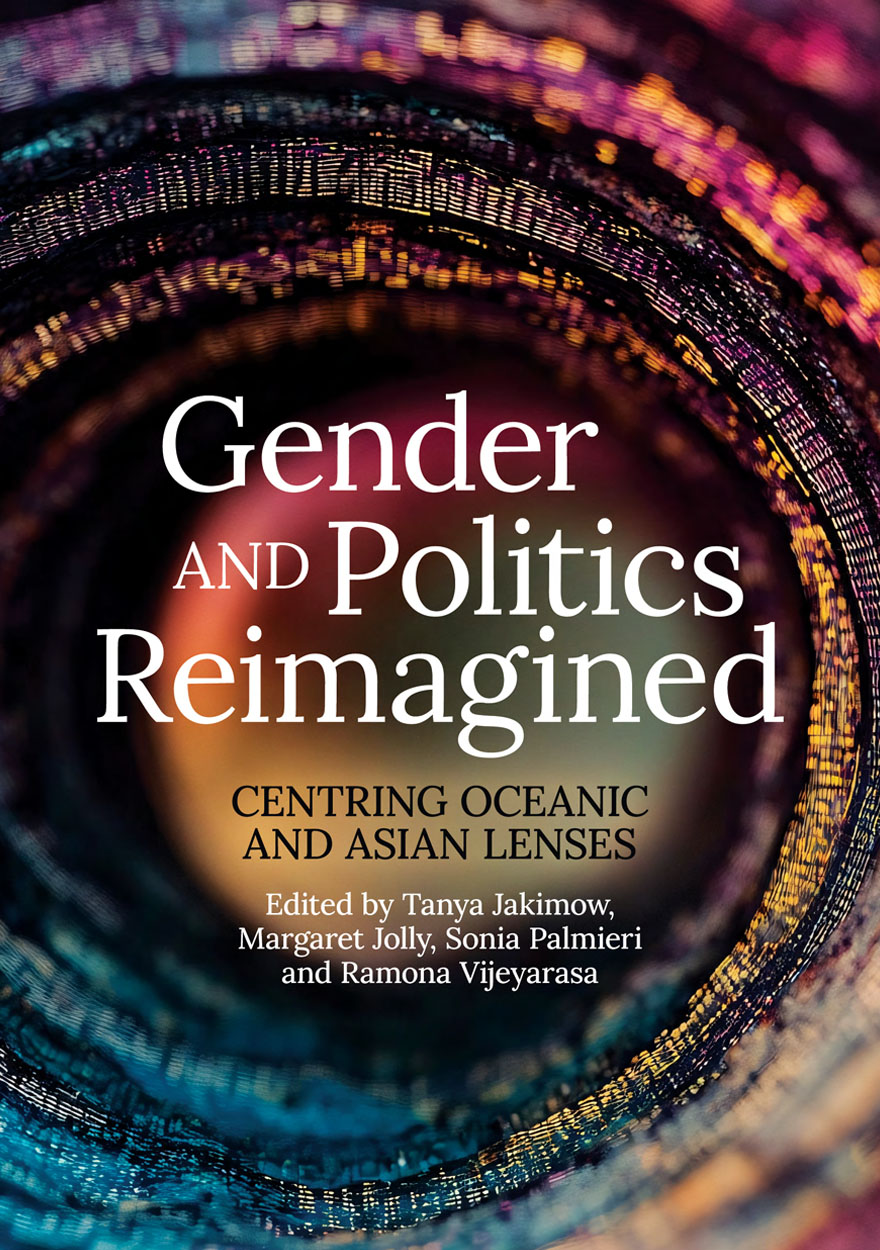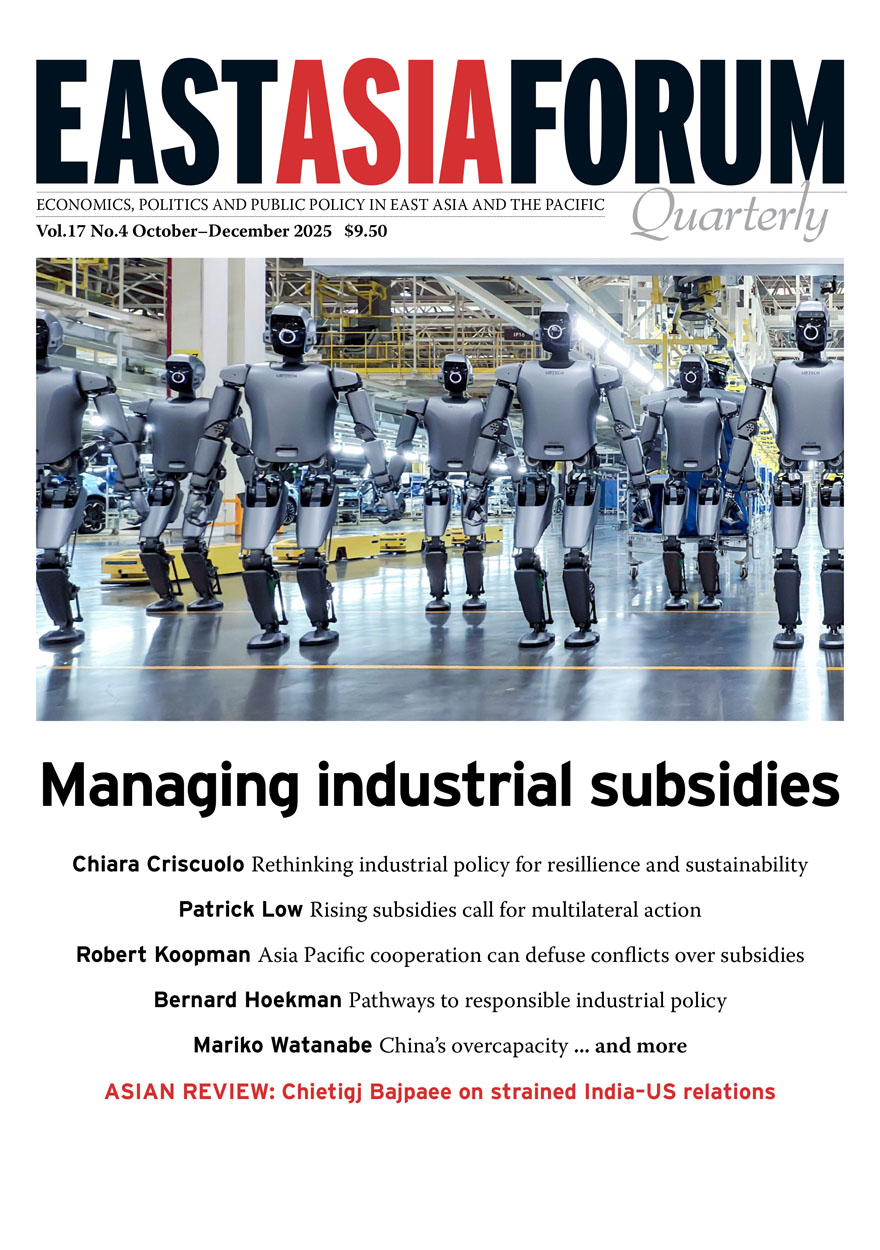ANU Press Publication Ethics and Malpractice Statement
ANU Press publishes approximately 50–60 books and 6 journals a year. Our mission is to publish works of high scholarly value in an open-access environment, promoting the dissemination of academic research from across the globe. As part of this mission, ANU Press is committed to achieving a high standard of publication ethics in its works, and recognises the importance of best standards of publication ethics and transparency in all aspects of publishing for its authors, editors, readers, reviewers and other stakeholders. ANU Press follows the Committee on Publication Ethics Core Practices to set standards for our behaviour as an ethical publisher.
Governance
ANU Press is part of The Australian National University (ANU), located within the Scholarly Information Services division. It is subject to and upholds the principles and policies that govern ANU and its divisions.
The ANU Press Advisory Committee advises the ANU Press and provides guidance on matters relating to the direction, scope and vision of ANU Press.
ANU Press publications are published with the support of appropriate editorial boards with expertise in the relevant discipline, area or field. These bodies are responsible for undertaking peer review of ANU Press publications and providing expert advice on selection of works to be published.
Peer Review
ANU Press publications are peer-reviewed by experts and academics in fields or disciplines relevant to the subject matter of the publication being reviewed. A rigorous peer-review process is used in all possible instances.
The peer-review process is fair, objective and transparent. Where there is a potential conflict of interest, peer reviewers are expected to remove themselves from the commission.
For peer-review processes for journals, please refer to the individual journal’s webpages.
Plagiarism and Academic Misconduct
ANU Press takes any allegations of academic misconduct concerning any submitted manuscripts or published papers seriously.
Reviewers are expected to report any suspected case of misconduct or plagiarism in a submitted manuscript to the publication editor, Editorial Board or ANU Press with sufficient information and evidence in order for an investigation to be initiated. Where plagiarism or misconduct is identified, ANU Press will act immediately to suspend publication of the submitted manuscript under question and investigate any allegations until a successful decision or conclusion is reached.
If a member of the public suspects any case of plagiarism or academic misconduct in any of ANU Press’ published papers, ANU Press encourages any such member of the public to notify any suspected case of misconduct or plagiarism in writing to ANU Press immediately. All alleged plagiarism or academic misconduct concerning published papers will be investigated by ANU Press in accordance with the procedures outlined below.
In investigating any allegations of plagiarism or academic misconduct concerning a submitted manuscripts or published papers, ANU Press will review the allegation in consultation with the responsible Editorial Board and then refer the case to the University Librarian for advice and decision. These responsive measure will include contacting the author/editor of the suspected manuscript or paper to obtain clarifications, giving due consideration of the respective complaint or claims made, and based on the seriousness of the plagiarism or academic misconduct, further communications to the relevant institutions and research bodies.
Author Responsibilities
To publish with ANU Press, authors must ensure their submitted manuscripts meets specific requirements for quality scholarly publications.
The author must warrant that:
- The submitted manuscript is original, has not been published previously and is not being considered for publication elsewhere in either print or electronic form.
- The source of any copyright materials in any submitted manuscripts have been acknowledged, cited or quoted and appropriate permissions to use such copyright material have been obtained.
- The work does not infringe on copyright held by other parties.
- The work does not contain any libellous material.
- Any interests, funding or affiliations that may impact on research findings and the impartiality of the submitted manuscripts are disclosed.
- They understand the licence conditions applied to their published papers.
- The submitted manuscripts are in respect of work conducted in an ethical and responsible manner and in compliance with all relevant legislation.
- The submitted manuscripts will report only accurate and reliable data.
Authors must ensure that all persons who have made a significant contribution to the conception, design, execution, or interpretation of the submitted manuscript will be listed as co-authors. If there are others who have participated in certain substantive aspects of the submitted manuscript, they should be acknowledged or listed as contributors. The corresponding author should ensure that all appropriate co-authors have seen and approved the final version of the submitted manuscripts and have agreed to its submission for publication.
All authors must also disclose in the submitted manuscript all sources of financial support for the project that the submitted manuscript is written about in order to inform the Readers about who has funded research and on the role of the funders in the research.
Editor Responsibilities
To publish with ANU Press, editors of proposed monographs must ensure their submitted manuscripts meets specific requirements for quality scholarly publications.
The editors must warrant that:
- The submitted manuscript is original, has not been published previously and is not being considered for publication elsewhere in either print or electronic form.
- They have obtained permission from contributing authors to reproduce their work as chapters in the edited collection.
- The source of any copyright materials in any submitted manuscripts have been acknowledged, cited or quoted and appropriate permissions to use such copyright material have been obtained.
- The work does not infringe on copyright held by other parties.
- The work does not contain any libellous material.
- Any interests, funding or affiliations that may impact on research findings and the impartiality of the submitted manuscripts are disclosed.
- They and the contributing authors understand the licence conditions applied to their published papers.
- The submitted manuscripts are in respect of work conducted in an ethical and responsible manner and in compliance with all relevant legislation.
- The submitted manuscript will report only accurate and reliable data.
Editors must ensure that all persons who have made a significant contribution to the conception, design, execution, or interpretation of the submitted manuscript will be listed as co-editors, or as chapter authors as is appropriate. If there are others who have participated in certain substantive aspects of the submitted manuscript, they should be acknowledged or listed as contributors. The lead editor should ensure that all appropriate co-editors and chapter authors have seen and approved the final version of the submitted manuscripts and have agreed to its submission for publication.
All editors must also disclose in the submitted manuscript all sources of financial support for the project that the submitted manuscript is written about in order to inform the Readers about who has funded research and on the role of the funders in the research.
Peer-reviewer responsibilities
Peer reviewers are an essential part of the scholarly publishing process. They assist the publisher in determining which publications add value to the scholarly debate and ensure the integrity of the scholarly record. Due to the important role played by peer reviewers, it is essential that reviewers conduct reviews in an ethical and accountable manner.
It is the responsibility of the reviewer to:
- Ensure they can return a review in a timely manner and that competing interests are declared to the Editorial Board before accepting a manuscript for review.
- Read the full manuscript and provide feedback on all chapters/articles.
- Respect the confidentiality of the peer-review process and not use information obtained during the process for your own or another’s advantage, or to disadvantage or discredit others.
- Do not involve anyone else in the review process without first obtaining permission from the Editorial Board.
- Remain unbiased by considerations relating to the nationality, religious or political beliefs, gender or other characteristics of the authors, origins of a manuscript or by commercial considerations.
- Declare any conflict of interest before accepting a manuscript for review.
- Inform the Editorial Board if you find you do not have the necessary expertise to assess the relevant aspects of the manuscript.
- Notify the Editorial Board if you suspect any breach of research or publication ethics immediately.
- Prepare a report for the Editorial Board at the end of the review identifying the strengths and weaknesses of the manuscript; providing any advice on revisions, edits, additions or omissions you think are required to improve the manuscript; advise the Editorial Board to accept, revise or reject the manuscript.
ANU Press employs a rigorous peer-review model. This model ensures that the authors do not know their reviewers. Authors can suggest potential reviewers to ANU Press Editorial Boards but they are not made aware whether these reviewers were used.
Conflicts of Interest
ANU Press undertakes to remove potential conflicts of interests whether identified before or after publications and expect our editors, authors, editorial board members and reviewers to also be alert to such issues. Such conflicts may arise from employment, consultancies, stock ownership, affiliations, honoraria, paid expert testimonies, funding arrangements or financial holdings, or grants, patent application/registrations that may raise concerns about potential bias in research findings or editorial decisions. Potential conflicts of interest should be disclosed at the earliest stage possible. If a potential conflict of interest is identified, the relevant party must declare the interest to the Editorial Board and remove themselves from the process while the conflict is investigated by ANU Press and the Editorial Board. In particular:
PUBLICATION EDITORS
Publications editors will:
- declare if they have any conflict of interest when submitting the manuscript to ANU Press for consideration.
- ensure authors and reviewers report potential conflicts of interest that may influence, or be perceived to have influenced, their research findings and conclusions.
- have in place processes for dealing with submissions from themselves and other members of the editorial board.
- ensure no commercial, advertising or sponsorship arrangements exercise any influence over editorial decisions.
MEMBERS OF EDITORIAL TEAMS/BOARDS
Members of editorial teams/boards will declare any conflict of interest before accepting a position on any editorial team or board, at the time of submission, declare their interest if they are seeking to publish their own work through an editorial board or journal of which they are a member of the editorial team or board.
AUTHORS
Authors will declare any potential conflicts of interest that might be construed to influence the results or interpretation of their submitted manuscript to publication editors/editorial boards upon submission of a manuscript.
REVIEWERS
Reviewers will declare any potential conflicts of interest to publication editors/editorial boards prior to undertaking any review.
Retractions and Corrections
In the event an error or a case of academic misconduct is not detected until after publication, a retraction or correction will be issued as soon as practicable.
Authors and other interested parties must promptly report errors or inaccuracies in the officially published version of the book or article. The journal editor or the editorial board will be responsible for adding an erratum to the article. The placement of the erratum will be at the discretion of ANU Press and will be made prominent. Retractions will be issued in cases of academic misconduct, or in the case of major errors that mean a publication’s findings are not reliable. In this case, the publication metadata will remain on the website with a retraction notice stating the reason for the retraction and its date.
The authors will cooperate with the journal editor or editorial board to retract or correct the published version of the book or article.
Open Access
As an open-access scholarly publisher, all content published by ANU Press is made freely available immediately upon publication. Authors are required to agree with this open access policy which enables unrestricted access and reuse of all published papers. The majority of the published papers since 2017 is made available under Creative Commons copyright licences (CC-BY). Users are allowed to copy and redistribute the material in printed or electronic format and build upon the material, without further permission or fees being required, provided that appropriate credit is given. Please see the copyright page of the publication for further information on the licence a particular book or journal is published under.
ANU Press does not charge authors for their work to be submitted, considered or published with ANU Press.
Authors are required to pay for the professional copyediting of their manuscript before production begins on an ANU Press book or journal; this fee is paid directly to the copyeditor. Where an index is required, the author will pay a professional indexer to complete this work.
In some instances, where significant production or editorial work is required that is outside the usual scope of ANU Press’s services, the author may be charged a fee. This fee is charged on a cost-recovery basis and more information can be found in the publication agreement between ANU Press and the author.
Copyright
ANU Press retains copyright over all book and journal layouts and cover designs that have been created by ANU Press. Where ANU Press has not created this content, this is indicated on the copyright page of the publication. ANU Press also retains copyright of all ANU Press logos and the ANU Press webpages. Authors retain copyright over their papers published by ANU Press, unless otherwise agreed or stated.
Permission must be obtained to reuse any content that is not published under a Creative Commons licence or where the use of content is not covered by this licence.
Archiving
All works published by ANU Press are made available to readers in multiple online formats and as print-on-demand paperback copies in perpetuity. ANU Press has also partnered with CLOCKSS to digitally preserve its ebooks and ejournals and future-proof access to these publications.
Confidentiality
Publication editors and any editorial staff must not disclose any information about a submitted manuscript to anyone other than the corresponding author, reviewers, potential reviewers, other editorial advisers, and ANU Press. Editors will ensure that material submitted remains confidential while under review.
Complaints Policy
We take seriously complaints or concerns about ANU Press publications, its staff, editorial board or the activities or information related to ANU Press.
All concerns related to errors or suspicion of academic misconduct should be reported in the first instance to ANU Press who will follow the procedures outlined in this statement. All allegations will be investigated in a timely manner and a response to the interested party will be provided within three months of the complaint being made. ANU Press will review the allegation in consultation with the responsible Editorial Board and then refer the case to the University Librarian for advice and decision.
Authors who have concerns about the editorial or peer-review process are encouraged to discuss these issues with ANU Press.
Concerns about the legal status of ANU Press publications, such as copyright, privacy or defamation should be submitted to ANU Press.
In the event a satisfactory response is not received, complaints may be directed to the ANU Press Advisory Committee.








